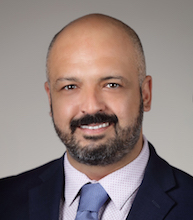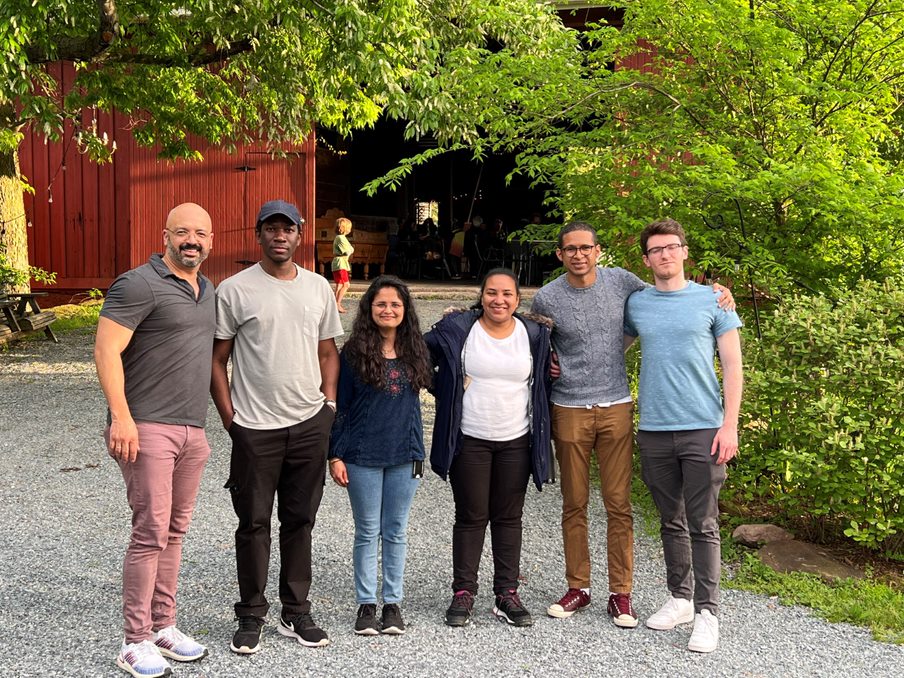Molecular Parasitology and Entomology Unit
Established in 2018
Joel Vega-Rodriguez, Ph.D.
Earl Stadtman Investigator, NIH Distinguished Scholar
Chief, Molecular Parasitology and Entomology Unit

Major Areas of Research
- Host-parasite-vector interactions required for sporozoite transmission
- Parasite interaction with the human fibrinolytic system and its role during parasite infection of the mosquito and the mammalian host
- Molecular mechanisms of Plasmodium sexual reproduction in the mosquito midgut
Program Description
Malaria parasites have a complex life cycle that takes place in between the human host and the mosquito vector. The parasite undergoes severe developmental bottlenecks during sexual reproduction in the mosquito midgut and during sporozoite infection of the human, making these two stages of the life cycle excellent targets for the development of new anti-malarial strategies. The research goals in the Molecular Parasitology and Entomology Unit (MPEU) are to study the biology of the malaria parasite during these vulnerable developmental bottlenecks by characterizing essential vector-parasite and host-parasite interactions. The long-term goal is to identify new targets that could be exploited for malaria interventions including chemotherapy, vaccine development, and transgenic mosquitoes.
The MPEU currently works on two main themes. The first theme explores how the parasite hijacks proteins from the human plasma to facilitate mosquito infection and transmission to a new host. One of our current objectives is to understand how Plasmodium parasites co-opt the human fibrinolytic system to overcome physical barriers and for immune evasion in the mosquito and the vertebrate host. The second theme focuses on identifying new molecular interactions between the parasite and mosquito hemolymph factors and assessing their role during parasite development in the mosquito. Our long-term goal is to identify new molecular targets that could be exploited for interventions to block malaria transmission. To achieve these goals, the MPEU combines cellular, molecular, and functional approaches including single-cell transcriptomics, proteomics, parasite and mosquito transgenesis, RNA interference, intravital confocal microscopy, and malaria transmission assays.
Inquiries about predoctoral and postdoctoral training, as well as Ph.D. studentships in the NIH Graduate Partnership Program, are welcome.
Biography
Education
Ph.D., 2008, Rio Piedras Campus of the University of Puerto Rico, San Juan
Dr. Joel Vega-Rodriguez received his Ph.D. in molecular biology in 2008 at the Rio Piedras Campus of the University of Puerto Rico in San Juan. In 2009 he joined the laboratory of Dr. Marcelo Jacobs-Lorena at the Johns Hopkins Malaria Research Institute, where he did his postdoctoral training and later became a research associate. In 2018, Dr. Vega-Rodriguez became a Stadtman tenure-track investigator in the Laboratory of Malaria and Vector Research.
Selected Publications
Tales V. Pascini, Yeong Je Jeong, Wei Huang, Zarna R. Pala, Juliana M. Sá, Michael B. Wells, Christopher Kizito, Brendan Sweeney, Thiago L. Alves e Silva, Deborah J. Andrew, Marcelo Jacobs-Lorena, and Joel Vega-Rodriguez. transgenic Anopheles mosquitoes expressing human PAI-1 Impair malaria transmission. Nature Communication. 2022. In Press.
Coelho CH, Tang WK, Burkhardt M, Galson JD, Muratova O, Salinas ND, Alves E Silva TL, Reiter K, MacDonald NJ, Nguyen V, Herrera R, Shimp R, Narum DL, Byrne-Steele M, Pan W, Hou X, Brown B, Eisenhower M, Han J, Jenkins BJ, Doritchamou JYA, Smelkinson MG, Vega-Rodríguez J, Trück J, Taylor JJ, Sagara I, Renn JP, Tolia NH, Duffy PE. A human monoclonal antibody blocks malaria transmission and defines a highly conserved neutralizing epitope on gametes. Nat Commun. 2021 Mar 19;12(1):1750.
Bogale HN, Pascini TV, Kanatani S, Sá JM, Wellems TE, Sinnis P, Vega-Rodríguez J, Serre D. Transcriptional heterogeneity and tightly regulated changes in gene expression during Plasmodium berghei sporozoite development. Proc Natl Acad Sci U S A. 2021 Mar 9;118(10):e2023438118.
Alves E Silva TL, Radtke A, Balaban A, Pascini TV, Pala ZR, Roth A, Alvarenga PH, Jeong YJ, Olivas J, Ghosh AK, Bui H, Pybus BS, Sinnis P, Jacobs-Lorena M, Vega-Rodríguez J. The fibrinolytic system enables the onset of Plasmodium infection in the mosquito vector and the mammalian host. Sci Adv. 2021 Feb 5;7(6):eabe3362.
Wang G, Vega-Rodríguez J, Diabate A, Liu J, Cui C, Nignan C, Dong L, Li F, Ouedrago CO, Bandaogo AM, Sawadogo PS, Maiga H, Alves E Silva TL, Pascini TV, Wang S, Jacobs-Lorena M. Clock genes and environmental cues coordinate Anopheles pheromone synthesis, swarming, and mating. Science. 2021 Jan 22;371(6527):411-415.
Reynolds RA, Kwon H, Alves E Silva TL, Olivas J, Vega-Rodriguez J, Smith RC. The 20-hydroxyecdysone agonist, halofenozide, promotes anti-Plasmodium immunity in Anopheles gambiae via the ecdysone receptor. Sci Rep. 2020 Dec 3;10(1):21084.
Research Group
The research goals in the Molecular Parasitology and Entomology Unit (MPEU) are to study the biology of the malaria parasite by characterizing essential vector-parasite and host-parasite interactions shaping malaria transmission. The long-term goal is to identify new targets that could be exploited for malaria interventions, including chemotherapy, vaccine development, and transgenic mosquitoes.


